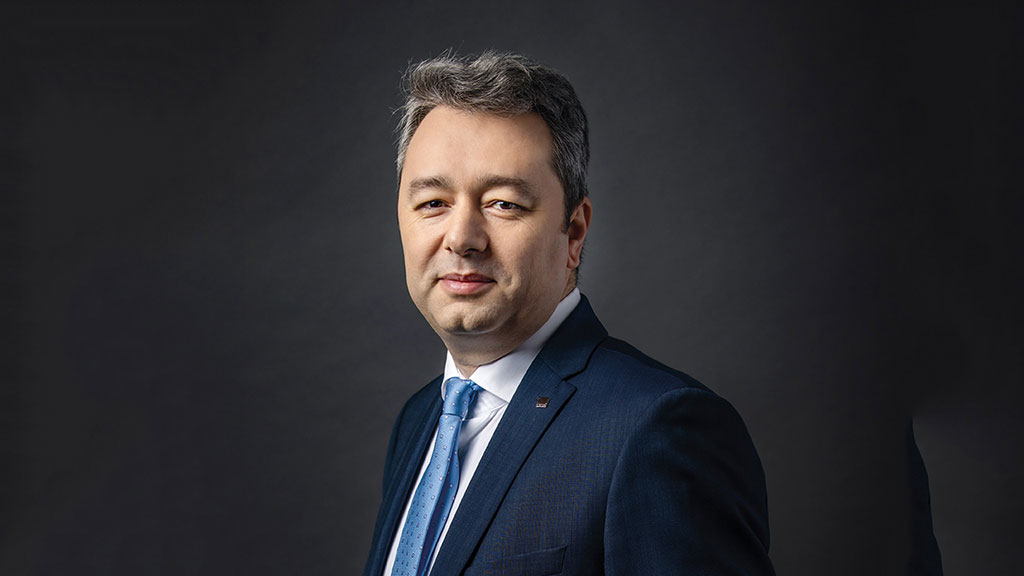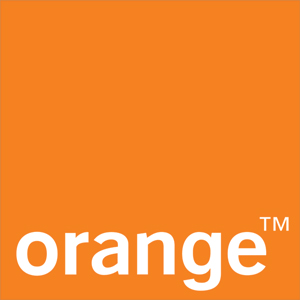Q: Orange Business sees significant potential in the market, especially for digital services. Could you detail specific areas or industries in which you believe the impact of digitalization can be most transformative?
Mr. Florin Popa: In the digital transformation processes of companies, especially small and medium-sized enterprises (SMEs), technologies like 5G and IoT, as well as cloud, edge computing, and AI, play a significant role. They offer opportunities for innovation for both the product and operational processes across various business sectors, such as agriculture, transportation, smart cities, and many others.
Current digitalization solutions involve managing vast amounts of data, and technologies like 5G facilitate data transfer thanks to low latency and high speeds. For instance, we conducted a case study in the Port of Galați, where 5G technology enabled safe navigation at sea. It allowed the remote management of barges through a network of sensors and real-time data transfer. 5G also plays a crucial role in the development of smart transportation and intelligent intersections, significantly improving traffic organization and safety by enabling vehicle coordination and obstacle anticipation.
Also, in the field of transportation, we have an use case in Brașov for public administration. This system involves sensors connected to a data analysis platform that helps the public sector optimize routes according to specific needs.
Lastly, I'll mention the example of a startup partner with Orange Fab, AgriCloud, which practices precision agriculture in viticulture. They use a system comprised of drones, robots, and sensors to provide early disease alerts and monitor vineyard conditions.
Orange Business is a leading IoT connectivity provider in Romania, offering the most important LPWA (Low Power Wide Area) technologies such as LoRaWAN, LTE-M, and NB-IoT. In the LoRaWAN network, we have over 100,000 connected objects, including smart meters in Bucharest, Iași, Buzau, and Cluj. In IoT cellular networks, including Low Power LTE-M and NB-IoT, we have nearly 1 million connected objects.
Simultaneously, we are making significant investments in next-generation networks, including 5G. We offer the fastest mobile internet on the market, with speeds of up to 1.5 Gbps, comparable to fiber optic speeds. Orange now has 5G/5G+ coverage in 38 cities, many of which are economic growth and innovation centers.
Q: Taking into account the positive trends and growth potential in the IT&C market in 2023, what specific factors do you attribute to this acceleration, and how does Orange Business intend to leverage these trends?
Mr. Florin Popa: The IT sector is experiencing a remarkable annual growth rate of 15-17%, which is three times faster than the national average, according to a 2022 study by ANIS that monitored the state of the IT industry in Romania. However, it's important to note that Romania still ranks last in the DESI 2023 report, which measures the level of digitalization among countries in the region. This suggests that there is significant room for development in the entire industry, with a considerable need for digitalization, especially among SMEs.
At Orange, we have a clear group-level strategy, "Lead the Future", which entails a profound transformation of our business model in the coming years to adapt to the new realities of the market, given that the boundaries between networks and digital services are blurring. The Orange Business division will capitalize on an integrated approach to connectivity, security, cloud, data management, and AI solutions.
Depending on the needs we observe among our customers, in Orange Business, we focus on IT infrastructure services (compute resources and physical equipment hosting), the development of a comprehensive portfolio of cybersecurity solutions, and solutions for smart cities and public administration.
In the cybersecurity domain, which is strategic for all companies, there has been a significant demand, especially in the last quarter, for implementing firewall systems and solutions that ensure compliance with European directives, such as NIS and NIS2.
We are pleased to see that infrastructure digitization services supporting local administration have seen tremendous growth. This includes projects that improve the relationship between authorities and citizens, initiatives to enhance the education process (e.g., IT infrastructure in universities), and projects aimed at improving public transportation.
Q: Given the expected growth in the IT&C market, how does Orange Romania anticipate the evolving landscape of the industry in 2023, and what challenges and opportunities do you foresee?
Mr. Florin Popa: Yes, there are significant challenges, especially in the talent landscape, with the new hybrid way of working, opening international markets to Romanian specialists. I will specifically address the field of cybersecurity, where we are seeing the most significant growth. The Fortinet 2022 Cybersecurity Skills Gap report found that 60% of organizations are struggling to recruit adequately qualified candidates and retain their current cybersecurity staff. According to the National Cyber Security Directorate (DNSC), Romania is short of between 1,500 and 2,000 cybersecurity experts. To address this deficit, Orange, alongside Bitsentinel, has launched the UNbreakable program on the CyberEdu platform, which allows all high schools and universities in the country to access a range of free cybersecurity resources by simply registering on the platform.
Simultaneously, it's necessary to place Romania back on the map of European innovation, and Orange is working on three main fronts: Orange Business provides infrastructure and resources for companies and startups looking to innovate. We support the local ecosystem through startup acceleration programs like Orange Fab and by opening two 5G labs in Bucharest and Iași, which have become innovation hubs for companies and the academic community. The Orange research and innovation team is also involved in European projects related to the development and security of future communication networks.
From innovation projects to the delivery of final solutions, Orange Business plays a significant role in developing connectivity and IT&C solutions that support the digital transformation of companies and public administrations.
Q: Given the emphasis on SMEs accessing funds, how is Orange Business assisting these businesses in selecting eligible IT&C solutions and providing consultancy for their digital transformation projects?
Mr. Florin Popa: Indeed, as mentioned earlier, there is a growing need for digitalization among local SMEs, as indicated by the DESI report. Small and medium-sized enterprises require solutions and, more importantly, experts to guide them through the auditing process and help them choose the best business products and services. Orange Business has over 800 business consultants, technology experts, and project managers dedicated to this purpose, along with over 70 IT&C experts holding a total of 490 certifications from key technology partners. Beyond the expertise and experience of Orange Business, our colleagues are involved in every stage of project delivery.
When in comes to project delivery, there are several types of technologies that assist companies, especially SMEs, in growing and developing. I'll focus on cloud solutions because Romania ranks second to last in Europe in terms of cloud adoption, just ahead of Bulgaria. To put this into perspective, the cloud uptake of large companies (48%) was higher than for SMEs (25%) in 2020, according to DESI. By industry, cloud adoption is highest in computer programming and consultancy sectors (65%), while it's around 20% in construction, retail trade, transport and storage, and accommodation and food services. This represents a significant potential for growth.
I could say that we've become cloud evangelists in Romania, where low adoption is partly due to preconceptions about on-premises hosting and high implementation costs. And we want to break those myths. It's important to note that Orange Business cloud solutions run on a network of secure data centers that are continually updated with the latest technology. Additionally, cloud computing systems integrate backup and disaster recovery solutions to ensure the company's data is secure and to reduce downtime in the event of a cybersecurity incident. Last but not least, the costs associated with the acquisition, installation, configuration, and management of local infrastructure are significantly reduced.
Q: Looking ahead, could you share some key milestones that Orange Business aims to achieve in 2023 and provide insights into the strategic objectives the company has set for 2024?
Mr. Florin Popa: Supporting local companies and administrations in their digitalization processes is our main ambition. We aim to accelerate the adoption of IT&C services, especially in the areas of security, cloud, and smart city solutions. We consider this product family to be a significant growth vector for the B2B segment, both in the immediate future and in the medium and long term.
At the same time, we focus on optimizing the internal delivery of these solutions. We believe that the value that a telecom operator with expertise in IT&C can bring lies in the ability to consolidate the various solutions and capabilities available in the portfolio into an integrated experience.
Additionally, at the company level, we align our strategy with the objectives set by the European Commission through its Digital Decade program for 2030. This program is designed to support and digitally transform European citizens and businesses. In particular, we seek solutions to achieve some of the targets, including 75% of EU companies should use cloud computing and AI in their operations; 90% of small and medium-sized enterprises should use automated digital processes for their operations; access to 1 Gbit/s speeds for all schools, transport nodes, major public service providers, and digitally intensive businesses.
You can also find the full interview in the document below:



































